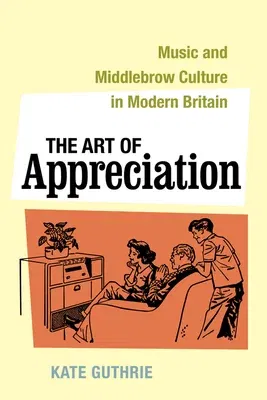Kate Guthrie
(Author)The Art of Appreciation: Music and Middlebrow Culture in Modern Britain Volume 30Hardcover, 13 July 2021

Qty
1
Turbo
Ships in 2 - 3 days
Only 2 left
Free Delivery
Cash on Delivery
15 Days
Free Returns
Secure Checkout

Part of Series
California Studies in 20th-Century Music
Print Length
306 pages
Language
English
Publisher
University of California Press
Date Published
13 Jul 2021
ISBN-10
0520351673
ISBN-13
9780520351677
Description
Product Details
Author:
Book Format:
Hardcover
Country of Origin:
US
Date Published:
13 July 2021
Dimensions:
23.01 x
15.8 x
2.79 cm
ISBN-10:
0520351673
ISBN-13:
9780520351677
Language:
English
Pages:
306
Publisher:
Weight:
566.99 gm